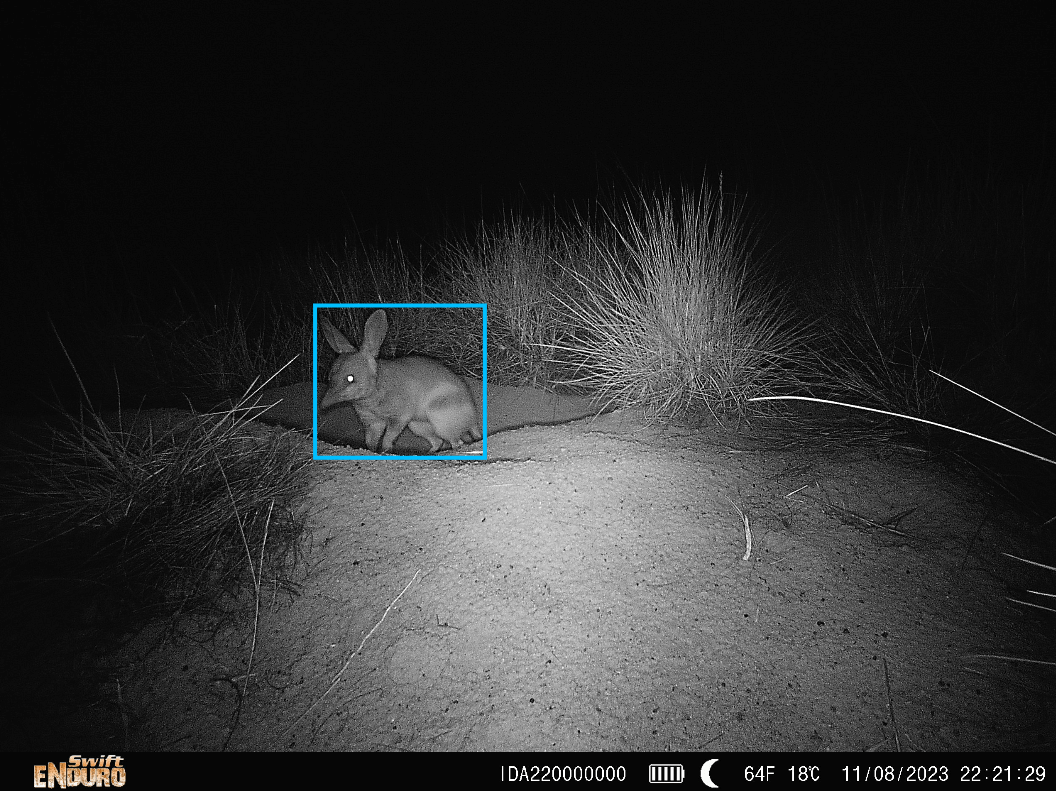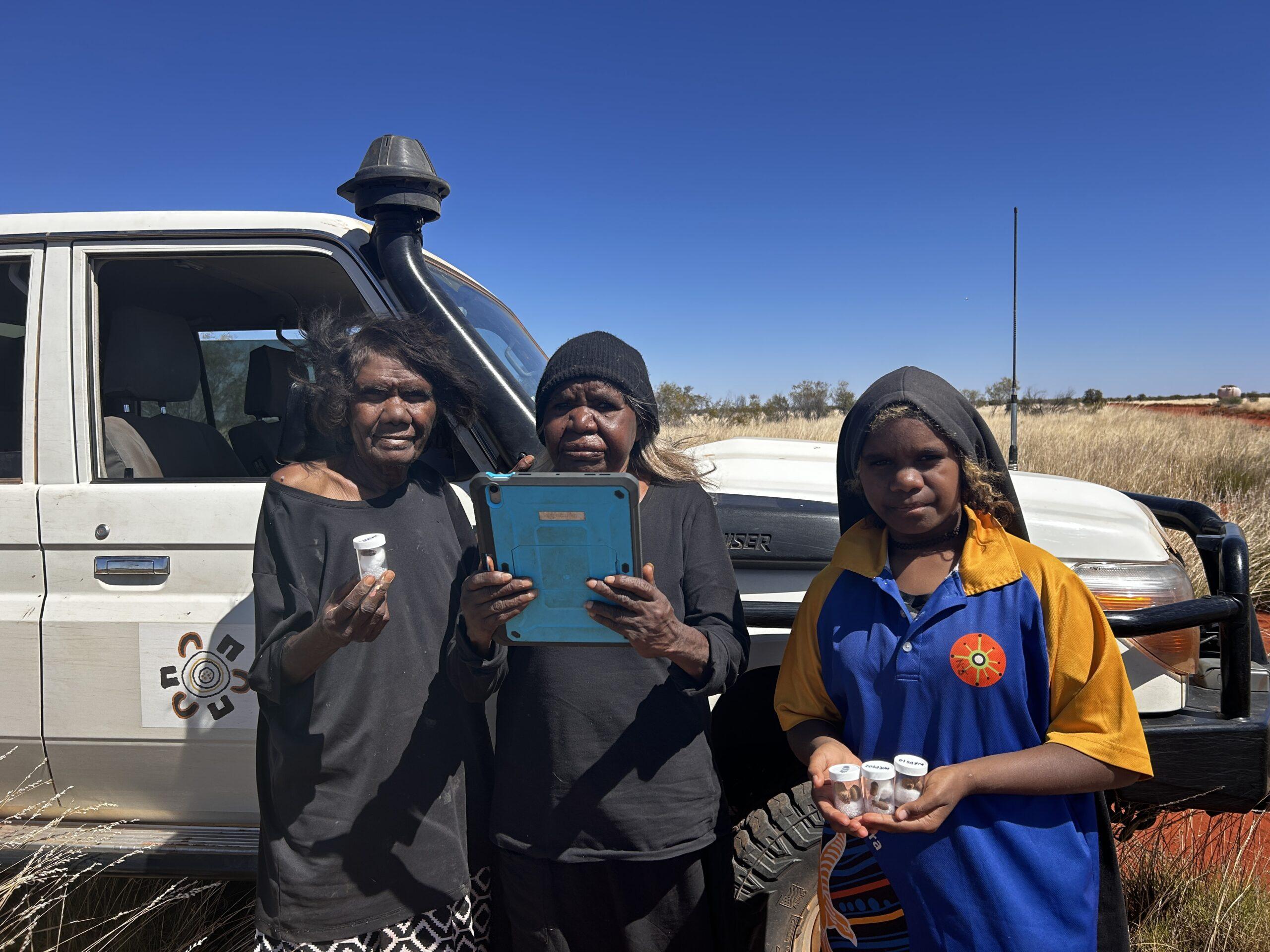29 March 2024
In the deserts of WA, Kiwirrkurra Rangers are using a two-way science approach to monitor and manage wild bilby, or ninu, populations.
The rangers use their tracking skills to find where bilbies are living, and to hunt feral cats prowling around their burrows.
With support from our hub’s and the Indigenous Desert Alliance, ranger use camera traps to monitor bilbies and their predators. Cameras are set up at burrows under different sorts of predator management.
And an AI detector is used to speed up the image processing of the camera trap photos, like the photo below.

A bibly (ninu) spotted in one of the camera traps on the Kiwirrkurra Indigenous Protected Area (IPA). Image: Kiwirrkurra Rangers.
Then, rangers collect the fresh bilby scats, which they are sending to the Department of Biodiversity, Conservation and Attractions.
The scats allow us to look at the bilby’s DNA.

Kiwirrkurra Rangers are collecting ninu (bilby) scats to help understand bilbies and their movements across the desert. Image: Kiwirrkurra Rangers.
From the DNA we can find out how many individual bilbies are at specific sites. Scats also tell us how well individual animals are surviving year to year. And how far they’re moving between sites.
We learned that some bilbies regularly travel 30km between sites!
And their sons and daughters are being found at sites 80km away!
These long distance movements tell us that we need to protect vast areas of habitat with landscape scale fire management and predator control.
This project combines Indigenous rangers’ expert knowledge of habitats, hunting, tracking and burning with the latest and greatest science and technology. This gives us all the best chance of keeping wild bilby populations wild. Wild, and free to follow the fresh growth from storms and firescars across the desert.
Here’s *hopping* for a bright future for bilbies.
This survey work is part of the NESP project, Research to support the management of priority desert threatened species.
Want to know more about the Resilient Landscapes Hub's activities and our research into practical solutions to environmental problems? Stay informed about activities, research, publications, events and more through the Hub newsletter.